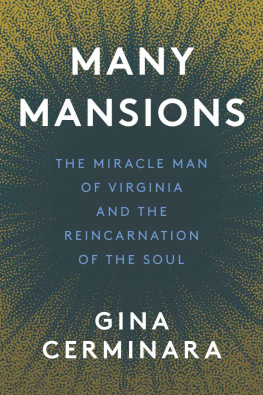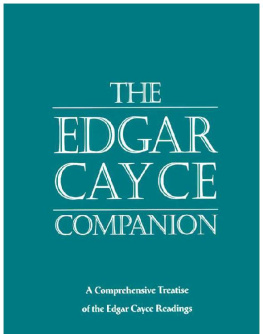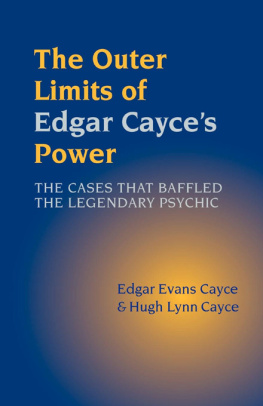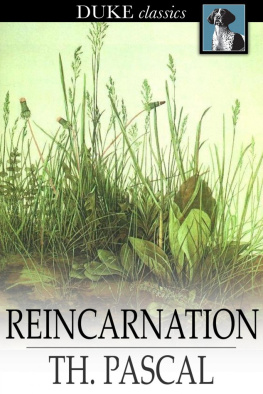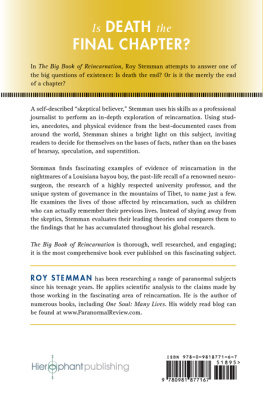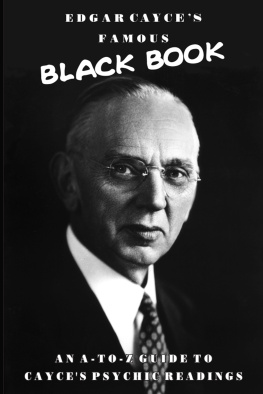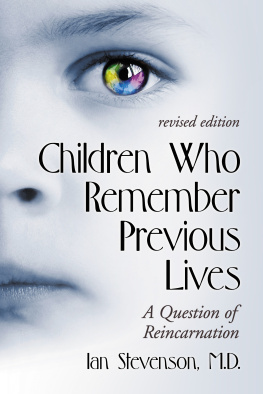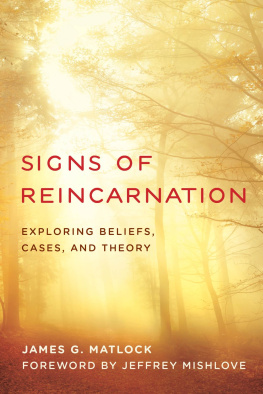Contents
Men are born; they suffer; they die. In these seven words, according to a tale told by Anatole France, a wise man once summarized all the history of mankind.
There is another, more ancient, and more significant story told about the suffering of men. It is the legend related about young Prince Siddhartha who was later to be known as Buddha, the Enlightened One. Siddharthas father was a wealthy Hindu potentate who was determined that his son should be protected from knowledge of the evils of the world. So the prince grew up to young manhood in pleasant seclusion and was given a beautiful princess in marriage without having once set foot beyond the palace walls. It was not until after the birth of his first child that young Prince Siddharthablissfully happy with his wife and child but curious about the outer worldmanaged to elude the palace guards and take his first trip through the teeming city.
On this fateful excursion, three sights on the streets impressed him deeply: an old man, a sick man, and a dead man. Shocked, the sensitive young prince asked his servant companion the meaning of such terrible distress. When he was told that these three afflictions were not uncommon, but fell to the lot of all mankind, the prince was so profoundly affected that he could not bring himself to return to his life of ease and pleasure. Renouncing all his worldly possessions, he set himself to the task of achieving wisdom so that he might learn to liberate men from the sufferings that befell them. Finally, after many years, he became enlightened, learned what he had sought to learn, andhis inner radiance being recognizedtaught men the path of liberation.
Not all of us could, like Buddha, renounce love, power, wealth, ease, and the warmth of family ties to seek so intangible a thing as meaning. Yet all of us can, and ultimately must, become concerned about the selfsame problem: Why do men suffer? And what can they do to free themselves from pain?
Our Utopian novelists have envisioned an era to come in which two of the afflictions that so shocked Buddha will have been outlawed: old age and disease. But they have not yet seen the possibilityeven with the most brilliant applications of modern physicsof outlawing what man thinks of as his ultimate enemy: death. And in the meanwhile, before a saner organization of the world and its resources can, if it will, bring security and health and peace and beauty and youth to all men, we are faced with a thousand insecurities, a thousand dangers, and ten thousand threats to happiness and inner peace. Fire and flood, epidemic and earthquake, disease and disaster, war and the menace of annihilationthese are some of the outer threats. And within the inner, psychic world of man, there are a throng of weaknesses and imperfectionsselfishness, stupidity, envy, malevolence, and greedthat are the source of pain both to himself and to those with whom he lives.
In our moments of exaltation, swept by the sublimity of music or of a sunrise, we feel that there must be joy at the heart of the universe, and deep intention; yet turning again to the harsh realities of life, with its cruelties and its crushing frustrations, we cannot but ask, if we have any perception, any compassion, any philosophic wonder at all, the ultimate questions: What, in the name of sanity, is the meaning and purpose of life, over and beyond the obvious, material one of sheer survival? Who am I? Why am I here? Where am I going? Why do I suffer? What is my true relationship to other men and theirs to me? What is our common relationship to the vast interplay of forces, and perhaps to a supreme force, beyond us and about us?
These are the most basic and the most ancient of human questions. Without an answer to these, all temporary expedients for the alleviation of pain, whether these be physical or psychological in nature, are finally without meaning. Unless the very possibility of pain has been explained, nothing has been explained. Until the suffering of the most insignificant, most remote of creatures has been accounted for, nothing has been accounted for, and our philosophic grasp on life is incomplete.
Since earliest times, even the most primitive of men have asked these ultimate questions. They have looked up into the grandeur of the skies and felt that mans struggles and sorrows were not so ignoble or futile as they seemed; they assumed meaning by virtue of a great cosmic relationship between man and the stars. Or they have sensed presences in the forest and have said that all living things had a spirit, including man himself, and that this spirit of man lived and suffered only a brief while on earth and after death went to a happier and more peaceful place. Or they have noted the sense of right and wrong within themselves, and felt that there must therefore be a greater right and wrong in the conscience of the universe, and a great place of punishment or reward in some other, distant realm.
There have been a thousand such beliefs and explanations, some cruder than others, some more refined and reasonable. And all over the world today, men live out their lives and valiantly brave their hardships on the assumption that some such explanation is the true one. There are those who, on the authority of Mohammed, believe one thing; there are those who, on the authority of Buddha or Guru Nanak or Moses or Jesus or Krishna, believe another. And there are many thousands who believe that, beyond the need to survive, there is no explanation for human life; others have ceased even to wonder about it, preferring to enjoy the ease or the pleasure of the moment.
We who have been raised in the Christian tradition have our own explanation for human life and suffering, and it is this: man has a soul and this soul is immortal; suffering is a test given us by God, and heaven or hell is the reward or punishment that awaits us, depending on how we meet the challenge of our present life. Those of us who believe this explanation believe itnot because we have any proof of it, but because it has been taught to us on the authority of our parents and our prelates; and they in turn had it on the authority of their parents and their prelates; and so on back, until we come to the authority of a book called the Bible, and a man called Jesus.
This is, most people will agree, a remarkable book; and Jesuswhether he be man or Son of Godwas an extraordinary person. Since the Renaissance, however, Western man has become increasingly skeptical of beliefs handed down on the strength of authority, whether it be a book or a persona growing skepticism with regard to all beliefs that cannot be proved in the relentless laboratory of science.
Ptolemy saidand the Church accepted and taught his pronouncementthat the sun revolved around the earth; yet the instruments which Copernicus invented and used showed it was the earth, instead, that revolved around the sun. Aristotlewhose psychology and science the Church fully embracedwrote that if two objects of differing weights were dropped, the heavier of the two would reach the ground first, yet by a simple experiment from the top of the Tower of Pisa, Galileo demonstrated that two objects of similar volume but of differing weights, when dropped, reach the ground at the same time. Numerous phrases in the Bibletogether with the most obvious of commonsense observationsindicated that the earth was flat; yet Columbus and Magellan and other explorers of the fifteenth century quietly overthrew this conviction by the unanswerable accomplishment of sailing West and arriving East.
By these and a hundred other demonstrations, men came gradually to see that the ancient authorities could be wrong. Thus was the attitude of science born, and thus came about the skepticism of the modern mind. Discovery after discovery disarranged the neat world-picture in which man had believed. Spirit? Nobody has ever seen a spirit. Soul? No one has been able to detect a soul, either lurking in protoplasm or sitting on the pineal gland, where Descartes had said it ought to be. Immortality? Who has ever come back to tell us about it? Heaven? Our telescopes show no evidence thereof. God? A colossal assumption; a projection of a mind that needed a father-substitute. The universe is a great machine. Man is a little machine, made possible by an accidental arrangement of atoms and a naturalistic evolutionary process. Suffering is mans inescapable lot in his struggle for survival. It has no meaning other than that; no purpose. Death is a dissolution of chemical elements; nothing else remains.

